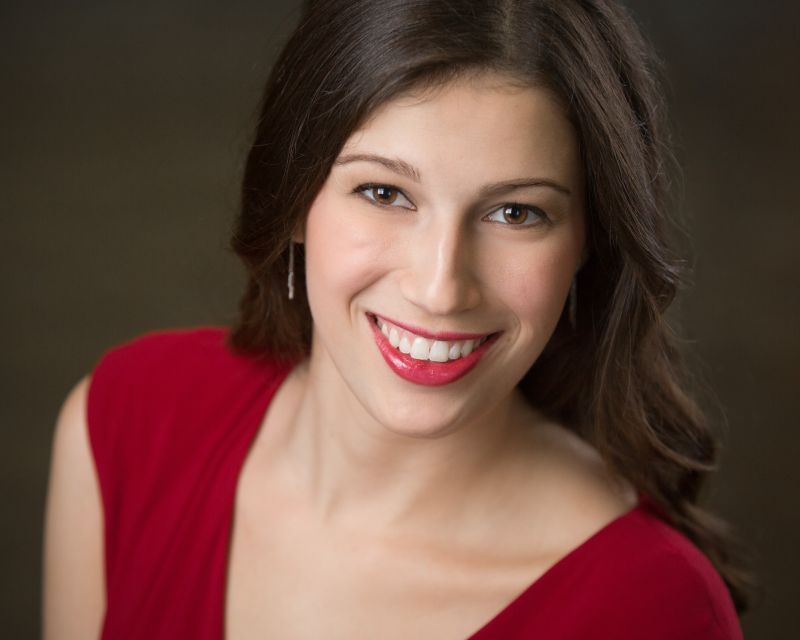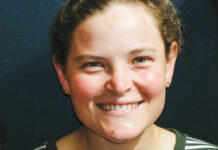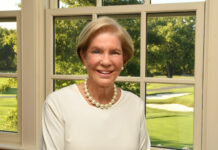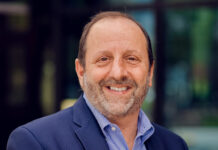Anyone who knows Boca Raton, Fla., knows that Jewish life is practically everywhere — from restaurants and residents to snowbirds, synagogues and Judaica shops.
That’s where Nicole Steinberg grew up, and where she attended synagogue, became a bat mitzvah and served as a madracha, a teaching assistant, for younger kids in Hebrew school. After graduating from a private high school, she attended the University of Miami, where she majored in voice performance.
“I was going into opera; I was going to do it,” says the 28-year-old, who had competed musically over the years and got a college scholarship at the university’s Frost School of Music, where she was one of four vocalists in her class and the only one who received the prestigious Stamps Scholarship.

Steinberg was also a part-time cantor, singing at a Southeast Florida synagogue during Shabbat services and the High Holidays. She thought about attending cantorial school but went the opera track instead. That led her to Baltimore, where she earned a master’s degree in voice performance at Towson University.
Now she is working on her dissertation while also serving as director of operations and media for Opera Baltimore, a position she has held since 2018. She is also a teaching assistant at the University of Maryland.
The topic is deep: music and traumatic response, which relates to Holocaust-themed performances and the visceral reactions of the audience, akin to finding safe spaces when it comes to the arts.
“It’s about support and understanding: ‘What did I experience? What was the impact of that piece on a particular audience?” poses Steinberg, who got married last June to Johns Hopkins University graduate Ryan Walter. They live in Baltimore City near Patterson Park.
Explain how you found the topic for your dissertation.
While I was studying at the University of Miami, I saw Sir David Pountney’s production of Mieczyslaw Weinberg’s opera “The Passenger” at Florida Grand Opera. I had heard rave reviews about the production but otherwise had no idea how it would affect me. Little did I know I would be leaving the theater in shock and awe, tears streaming down my face and a renewed reverence for the power of the operatic medium.
“The Passenger” is an operatic setting of Auschwitz survivor Zofia Posmysz’ novel of the same name. Very simply, it tells the story of two women in Auschwitz: SS officer Liese and Polish prisoner Marta. The opera was written in 1967 and was scheduled to be premiered in 1968, but its performance was censored by the Soviet Union. Its first public performance was a concert version in Russia in 2006. It was finally presented fully staged at the Bregenz Festpiele in Austria in 2010, which is the very same production I saw at FGO.
I had always known that I wanted to focus on the Jewish music experience in my dissertation. As I began working on my Ph.D. in musicology at UMD College Park, I found myself thinking about this particular production more often because of my traumatic response to it. The intensity of the production helped me formulate my first question: How can opera companies engage the greater community before and after the performance of traumatic repertoire for the purpose of providing a space for both audience members and artists to safely and effectively process their own potential traumatic response?
What is it that viewers need to know before approaching a topic like the Holocaust?
Each time that a viewer encounters Holocaust repertoire — be it in film, literature, via theater or on the operatic stage — it is an opportunity to bear witness, to allow the memory of the Holocaust to penetrate our consciousness and to participate in Holocaust testimony as an active listener. It is our moral responsibility to bear witness to Holocaust trauma. It is a paramount part of remembrance and education. The subject matter is intensely difficult to engage with — and it should be.
Is it even possible to grapple with the Shoah in art form? And how do you relate to those who don’t even believe that it happened?
It is absolutely possible to grapple with the Shoah through art. If you think about it, you hardly ever experience it otherwise, except when listening to individual testimony. Whether you are reading Holocaust literature, watching a Holocaust film or visiting the United States Holocaust Memorial Museum, you are experiencing a telling of the Shoah in a curated, artistic fashion.
There will unfortunately always be those who deny the Holocaust. I don’t think any particular individual or entity has created an exact formula for how to get through to people who believe that the atrocity never occurred.
We can continue to do what we are doing: preserving Holocaust history and testimony, and creating accessible opportunities for educational and artistic engagement. We cannot control what people think but we can always create spaces and opportunities to show truth. One day, a Holocaust denier may see a work like “The Passenger” and be changed.
Is there a different way to approach the subject for Jewish and non-Jewish viewers?
Each individual’s approach to the understanding or interpretation of the Holocaust is affected by positionality. The generational trauma of the Holocaust is deeply embedded in people across the globe, but each individual experiences the subject differently. However, when you watch an opera, go to the theater or walk through a museum, you are part of a collective audience experience independent of your Jewish identity. The approach to the presentational aspect of the subject in these cases is not different between viewers. What is most important, Jewish or non-Jewish, is that we encourage questions and the willingness to learn more.
Do you plan to teach post-doctorate? And will you continue to perform?
My post-doctorate plans are fluid. I absolutely love teaching, but there is also a place for my research in the nonprofit arts industry in outreach coordination and audience development. I’m excited to see what opportunities may present themselves. I am not performing at the moment. I’ve taken a step back from performance to be more active behind the scenes. While I do miss performing, I prefer to be a steward for other great artists.
Why is music so central to the human experience? The Jewish experience?
In regard to the Jewish experience, music is inseparable with both our culture and faith. Music is in an integral part of every service, every holiday, every life event. I interviewed a former rabbi for a project a few years ago. When I played him Weinberg’s Cello Concerto, he said that he could feel neshama (“soul”) in the piece. For me, that says it all. I feel music brings us not only closer to others, but closer to an understanding of ourselves.
What three things do you miss (or not miss) about living in Florida?
My family is still in Boca Raton and Miami, and I miss them deeply. We are very close, and love to come together to celebrate Jewish holidays and life milestones. I try to see them every chance I get. What are the other two things I miss? Definitely the warm sunshine (I don’t understand how anyone can possibly find joy in snow) and Laspadas, the best hoagie. Period!







